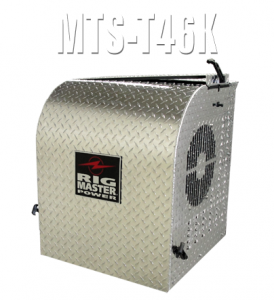Comfort Master Parts – Boost Your APU’s Efficiency
When it comes to maximizing the efficiency of your vehicle’s APU (Auxiliary Power Unit), choosing the right Comfort Master parts is crucial are known for their quality and reliability, making them a popular choice among drivers looking to optimize their APU’s performance. In this blog post, we will explore the role of an APU in your vehicle, the importance of selecting the right parts, key Comfort Master components for APU efficiency, and the impact of regular maintenance on APU performance.
Understanding the Role of an APU in Your Vehicle
An Auxiliary Power Unit, or APU, serves a critical function in the operational efficiency and comfort levels within your vehicle, especially when the main engine is off. This compact engine powers auxiliary systems that contribute significantly to the vehicle’s non-propulsion functions. Its primary duties include managing the heating and air conditioning systems to maintain a comfortable cabin temperature, providing electricity to power electronic devices, and sometimes even supporting the main engine’s battery charging. APUs are particularly valuable for long-haul truck drivers who spend considerable time in their vehicles during breaks and rest periods, enabling them to enjoy the comforts of home without the need to keep the main engine running. The utility of an APU extends beyond comfort; it plays a pivotal role in reducing unnecessary fuel consumption and minimizing wear on the main engine by offering an alternative source of power. This not only leads to significant cost savings over time but also contributes to a lower environmental footprint through reduced emissions. The implementation of an APU is a testament to the advancements in vehicle technology aimed at enhancing efficiency and driver satisfaction, marking a significant step towards more sustainable and economical vehicle operations.
The Significance of Choosing the Right Parts
Ensuring your APU operates at peak performance requires more than just regular maintenance; it hinges on the quality and compatibility of the parts you choose. Comfort Master parts stand out in the marketplace for their exceptional durability and precise engineering, tailored to fit a broad spectrum of APUs. Opting for Comfort Master components guarantees that every piece works harmoniously with your system, promoting efficiency and reliability. This meticulous selection process is pivotal because it directly influences the operational costs and environmental impact of running your APU. With Comfort Master parts, drivers can rest assured that their APUs will not only meet but exceed performance expectations, delivering consistent power, and minimizing the risk of downtime due to parts failure. The integrity of these components underpins the APU’s ability to perform its essential functions, from climate control to battery support, without placing undue stress on the vehicle’s main engine. In essence, investing in the right parts from Comfort Master is an investment in the longevity and efficiency of your APU, ensuring it remains a dependable asset in your vehicle’s overall operation. This strategic choice empowers drivers to navigate the demands of the road while optimizing fuel usage and reducing emissions, contributing to a greener, more cost-effective driving experience.
Key Comfort Master Parts for APU Efficiency
Optimizing your APU’s performance hinges on incorporating top-quality components designed to work in perfect synergy. Comfort Master, a leader in creating innovative solutions for vehicular efficiency, provides a suite of parts engineered to elevate the operational capacity of your Auxiliary Power Unit. Among these, certain key elements are instrumental in ensuring that your APU functions seamlessly, thereby enhancing overall efficiency. At the core of these components are Comfort Master alternators, crucial for their role in supplying a steady stream of electrical power to the APU’s systems. This consistent energy flow is essential for maintaining operational reliability, especially during extended periods of use. Similarly, Comfort Master compressors play a pivotal role in the climate control capabilities of your APU. They ensure that regardless of external temperatures, the interior climate remains precisely regulated for optimal comfort. Fuel efficiency and clean operation are significantly boosted by Comfort Master fuel pumps and filters. The fuel pumps are designed for precision, delivering just the right amount of fuel to the APU’s engine for efficient performance. Meanwhile, the filters play a critical role in maintaining the cleanliness of both fuel and air entering the engine. This not only optimizes performance but also extends the lifespan of the APU by preventing the accumulation of harmful contaminants. Each of these components — alternators, compressors, fuel pumps, and filters — is meticulously designed to meet the rigorous standards of Comfort Master. By incorporating these parts into your APU, you are ensuring that it operates at peak efficiency, with a focus on reliability, fuel economy, and longevity. This strategic approach to selecting Thermo King parts for your APU can significantly enhance its performance metrics, making it a valuable asset in achieving operational excellence.
The Impact of Regular Maintenance on APU Performance
Regular upkeep is the linchpin in preserving the operational integrity of your APU. This commitment to maintenance extends beyond simple cleanliness and into the realm of proactive problem-solving. Routine check-ups allow for the early detection and correction of issues before they escalate into significant malfunctions. This involves a comprehensive review of the APU’s components, such as verifying the proper function of Comfort Master parts like alternators, compressors, fuel pumps, and filters. Ensuring these components are in optimal condition is essential for sustaining the APU’s efficiency and reliability. Regularly scheduled maintenance tasks, like filter replacements and fluid checks, play a significant role in preventing performance degradation over time. By diligently adhering to a maintenance schedule, you actively contribute to the reduction of operational costs by minimizing the likelihood of emergency repairs and maximizing fuel efficiency. Moreover, this practice enhances the APU’s lifespan, ensuring it continues to provide essential services such as climate control, electrical power, and main engine support without interruption. In essence, the health of your APU, its performance consistency, and its efficiency are directly tied to the regularity and quality of the maintenance it receives. Engaging in these preventive measures is not just about avoiding future issues but about reinforcing the APU’s role in achieving a more efficient, economical, and environmentally friendly operation.




 If your business is in the fleet industry, it’s essential to be aware of new regulations and changes that could affect your operation. One such change is the shift in idling laws. With the emerging trend of strict idling laws, it’s time to explore options like an
If your business is in the fleet industry, it’s essential to be aware of new regulations and changes that could affect your operation. One such change is the shift in idling laws. With the emerging trend of strict idling laws, it’s time to explore options like an 

